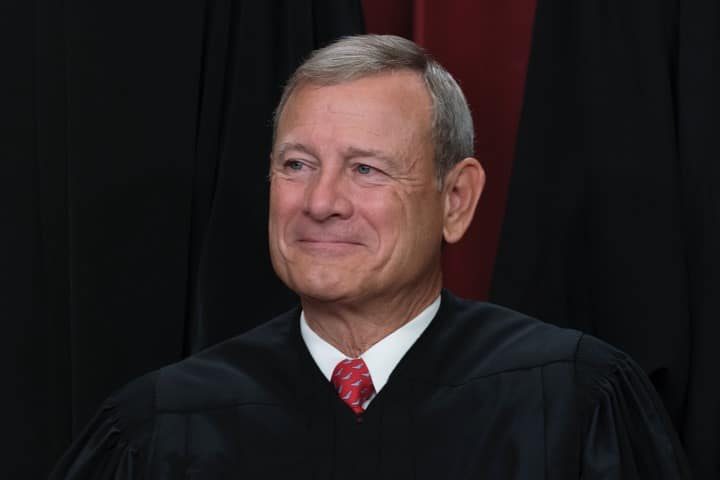
U.S. Supreme Court Chief Justice John Roberts issued a one-page letter refusing an invitation by the Senate Judiciary Committee to testify about Supreme Court ethics. The committee is investigating alleged corruption on the part of U.S. Supreme Court Justice Clarence Thomas, who is accused of having accepted vacations from a wealthy Republican donor.
Roberts’ letter demonstrates the chief justice’s attitude that his branch of the federal government is superior to its sister branches: the legislative and executive.
The current chief justice is perhaps most infamous for rewriting the Obamacare legislation so that it would, in his opinion, pass constitutional muster. This was an act of legislating from the bench which is, ironically, just as unconstitutional as Obamacare.
Related to that, the attitude modeled by Roberts — as well as by most Americans today, having been taught at government-approved schools out of government-approved textbooks — is that the “Supremacy Clause” of Article VI of the Constitution makes the federal government superior to the state governments.
I’ve written thousands and thousands of words on that subject, but suffice it to say that the key phrase in Article VI’s declaration of the “supreme law of the land” is “in pursuance” of the powers granted to the federal government in the U.S. Constitution. Acts of the federal government that violate the limits on their authority are not the “supreme law,” and, in fact, are not law at all. Alexander Hamilton writes in The Federalist No. 33 that acts of the federal government “which are not pursuant to its constitutional powers” are “merely acts of usurpation and will deserve to be treated as such.”
Simple enough.
The next issue deals with the popular, though constitutionally contrary, idea that the Supreme Court is the final arbiter on all things constitutional. Support for this erroneous belief also arises from a misreading of Article VI.
Here’s the list of things that comprise the “supreme law of the land” as laid out in Article VI:
- The Constitution
- Laws passed by Congress, in pursuance of its constitutional authority
- Treaties
That’s it. Notice what’s clearly absent from that list? Yep. Supreme Court opinions.
That’s a very important absence. Most of the Founding Fathers who drafted or ratified the Constitution knew of a very ancient legal maxim that reads: expressum facit cessare tacitum, which, translated, means: “what is expressed makes what is implied silent.” In other words, if the Founders had intended to include Supreme Court opinions in the list of those things making up the “supreme law of the land,” then they would have done so. They didn’t, therefore they aren’t.
Supreme Court opinions are simply meant to provide a check and a balance to the powers of the other two branches by advising them when their acts exceed the powers granted to them in the Constitution. Nowhere in Article III — where the powers of the federal judiciary are listed — is the Supreme Court placed in any way above the legislature or the executive.
In fact, in The Federalist No. 78, our old friend Alexander Hamilton described the federal judiciary as “the weakest of the three departments of power.” That certainly doesn’t jibe with Justice Roberts’ implication that the Supreme Court is the pinnacle of power in the federal government.
It wasn’t just Hamilton who understood that the federal courts were not designated the ultimate judge of what is or is not constitutional.
Consider the clarity of this statement made by James Madison regarding who or what is to have the final say-so in constitutional controversies:
However true therefore it may be that the Judicial Department, is, in all questions submitted to it by the forms of the constitution, to decide in the last resort, this resort must necessarily be deemed the last in relation to the authorities of the other departments of the government; not in relation to the rights of the parties to the constitutional compact, from which the judicial as well as the other departments hold their delegated trusts. On any other hypothesis, the delegation of judicial power, would annul the authority delegating it; and the concurrence of this department with the others in usurped powers, might subvert forever, and beyond the possible reach of any rightful remedy, the very constitution, which all were instituted to preserve.
And here’s Madison’s best friend, Thomas Jefferson, echoing his pal’s position on this issue:
To consider the judges as the ultimate arbiters of all constitutional questions: a very dangerous doctrine indeed and one which would place us under the despotism of an oligarchy. The Constitution has erected no such single tribunal knowing that, to whatever hands confided, with the corruptions of time and party its members would become despots. It has more wisely made all the departments co-equal and co-sovereign within themselves.
So, while Chief Justice John Roberts may be somewhat excused for his erroneous concept of his court’s power because of how prevalent the idea is, he is the chief justice of the U.S. Supreme Court, and he did take an oath to support the Constitution, and one cannot support what one doesn’t know.
And, in his insistence that the Supreme Court is beyond the reach of the people’s representatives in Congress, Roberts is proving that he doesn’t know that document as well as he should.



